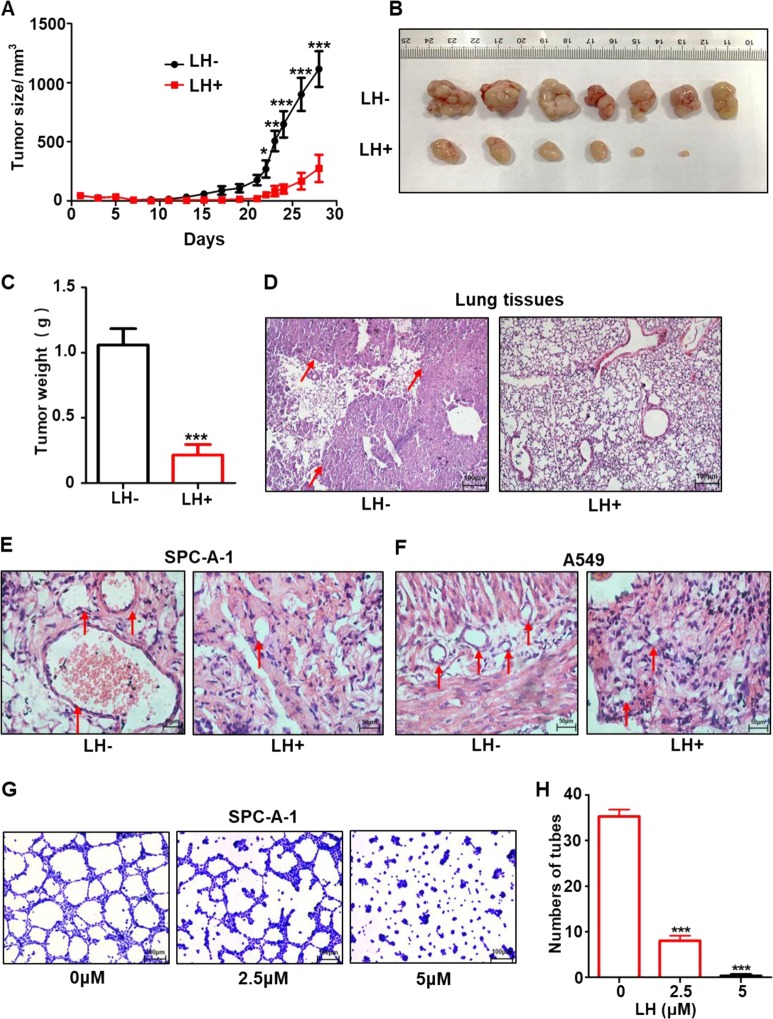Fig. 1. Lycorine effectively inhibits lung cancer tumor growth, vasculogenic mimicry, and metastasis in xenograft mice.
The nude mice (n = 7 each group) were subcutaneously injected with 1 × 107 human lung cancer SPC-A-1 cells, and then intraperitoneally injected with lycorine at the dose of 10 mg/kg/day or vehicle control daily. The tumor size (a) were recorded for 28 days. The excised tumors were imaged (b) and weighted (c). In the another cancer metastasis model, the nude mice (n = 7 each group) were daily treated with lycorine at the dose of 10 mg/kg/day or vehicle control daily, and the lung metastasis in either lycorine-treated or control mice were accessed by lung tissue H&E staining (d, ×200) arrowheads indicate lung cancer nodules in the lung tissues. LH + represents with lycorine treatment, LH− represents vehicle control. In the in vivo Matrigel plug assay model, lycorine effectively abrogated the formation of tumor blood vessels by SPC-A-1 (e) and A549 cells (f). The in vitro tumor cell tube-formation assay showed that lycorine at the concentration of 5 μM near completely inhibited SPC-A-1 cell formation of capillary like structure (tube) (g, h). Data represent the mean ± SD of triplicates. *P < 0.05. **P < 0.01. ***P < 0.001.

